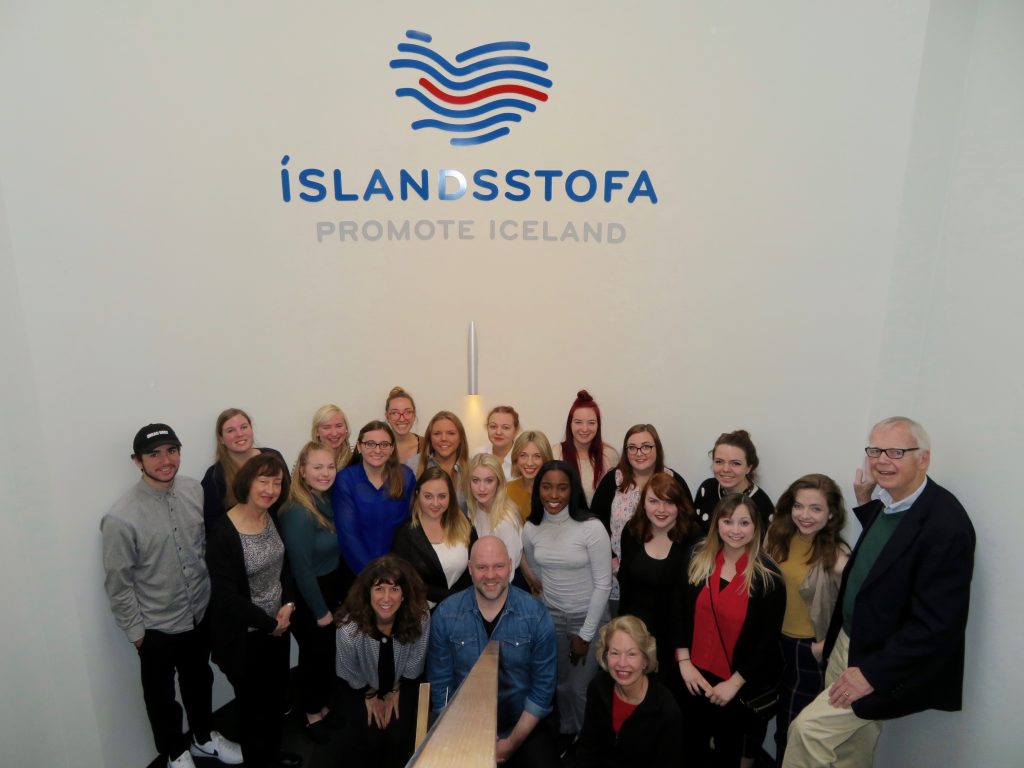
By Kristin Snapp
Authenticity is one of the most striking characteristics among Icelanders, so it comes as no surprise that Promote Iceland employs that same mission in all of its marketing materials.
Prior to 2012, the agency struggled to convince people that Iceland could be a tourist destination. The pre-existing tourism industry was only booming in the summertime, and those at Promote Iceland were hard fought to promote tourism in the wintertime. A volcanic eruption of Eyjafjallajökull caused all air traffic to be halted for two weeks. It sparked interest in the small island nation, but how to proceed and capitalize on that notoriety was the challenge.
So instead of focusing so much on the photogenic nature of the country, Promote Iceland turned to the people, making an entire marketing campaign trying to capture the welcoming and authentic way of Icelanders.
“We have this saying here in Iceland, and it’s ‘Answer the door in the clothes you’re already wearing,’” Sveinn Birkir Björnsson, digital manager at Promote Iceland, a public-private partnership, told students.
The agency’s first piece of material for this campaign was its 2012 film, “Íslander.” They talked to people all over Iceland, from those in the rural countryside, to the mayor of Reykjavik and even the country’s then-president. They made about 200 open invitations to join into various activities like mussel picking, knitting Icelandic wool or attending an open band rehearsal.
Promote Iceland was unsure at first if the film would garner any responses, but it exceeded expectations. The film itself was played in festivals all over the world.
But in 2014, Promote Iceland ran another campaign so successful that Google even did a case study on it – #AskGudmundur.
Gudmundur is a common Icelandic first name, but that’s not the reason Promote Iceland chose to use it in a campaign.
“Because it sounds almost exactly like Google,” Björnsson said. “Why ask Google when you can ask a human?”
Promote Iceland picked one “Gudmundur” for each of the seven regions in Iceland. People sent their questions to the various Gudmundurs and would receive a comedic video response. And, in keeping with their mission, Promote Iceland captured authenticity by making all Gudmundurs unscripted.
Ask Gudmundur was so successful that the agency continued its play on Google by creating Gudmundur Hangout, which invited people to hang out with the Gudmundur in his or her area.
The entire Gudmundur campaign was so successful that after all the videos made their way online and the surveys and statistics of the campaign surfaced, Google reported a 164 percent increase in the word “Iceland” from people who saw the videos; there was a 40 percent increase in the search of the seven regions of the country; and perhaps most importantly, after the videos, people were 40 percent more likely to consider Iceland a vacation destination.
But when tourism increased, Promote Iceland saw another opportunity – Some tourists did not fully understand how to safely, responsibly and respectfully tour Iceland. And so came Iceland Academy.
“When we have tourists come in, they will not do it our way, and that infuriates Icelanders,” Björnsson said.
The campaign was online videos or classes that taught lessons on things like how to properly pack to visit Iceland, how to eat Icelandic food, how to prepare to swim in a public spa or pool, and how to drive in Iceland.
At the end of the videos, viewers could complete tests and were entered into a contest upon completion, with one winner being awarded a weekend in Iceland – the Student of the Year.
Iceland Academy was so successful, Google found a 342 percent increase in searches for “Iceland.”
But do the quirky, jovial tone behind Promote Iceland’s materials go misunderstood in other countries or get lost in translation? Well, the minds behind the materials don’t care. Promote Iceland’s mission statement says in full transparency that the country might not be for everyone.
“If you find [the humor] offensive, then Iceland might not be the place for you,” Björnsson said. “We don’t have to compromise our identity to promote tourism. We don’t want to.”